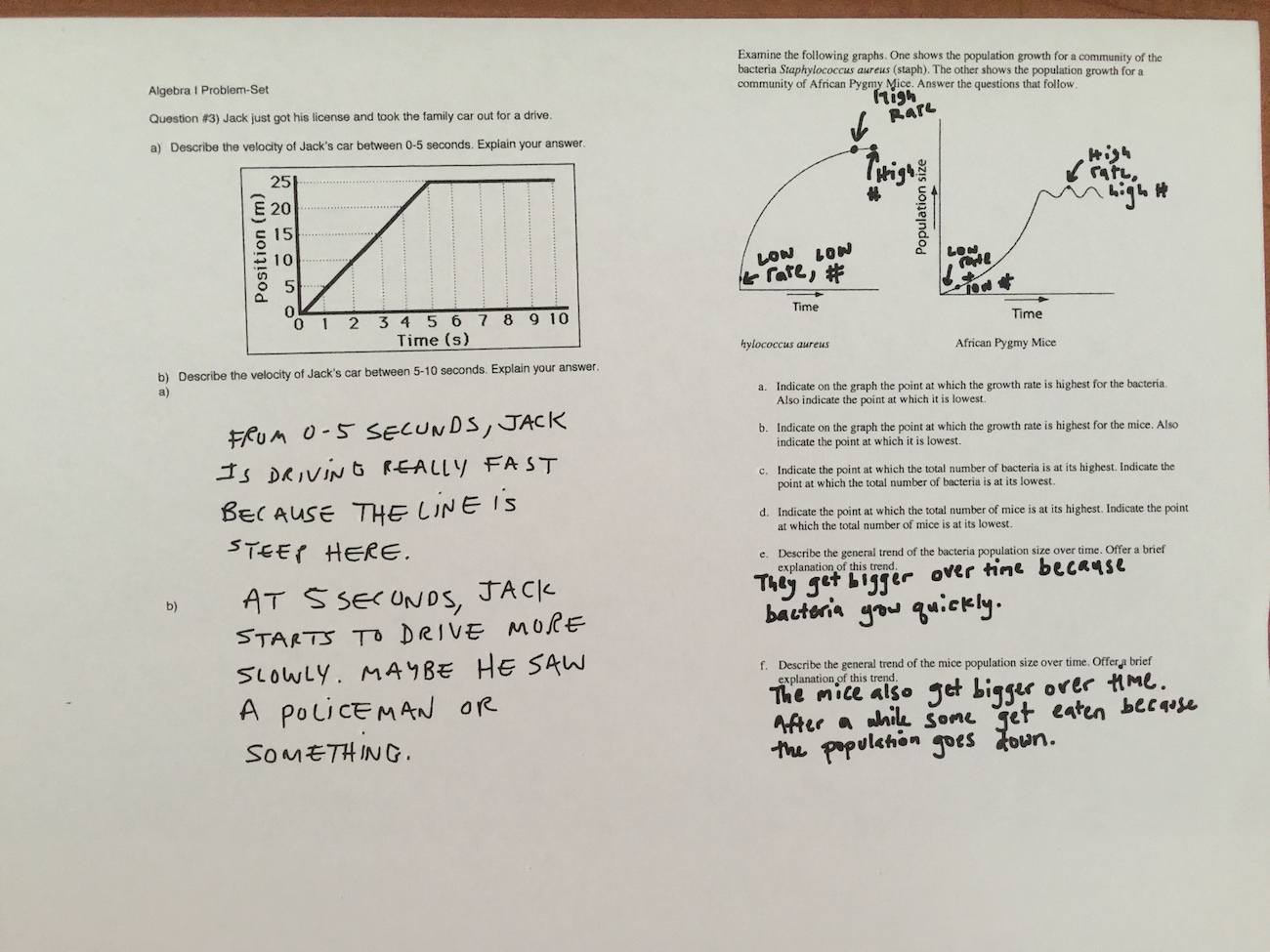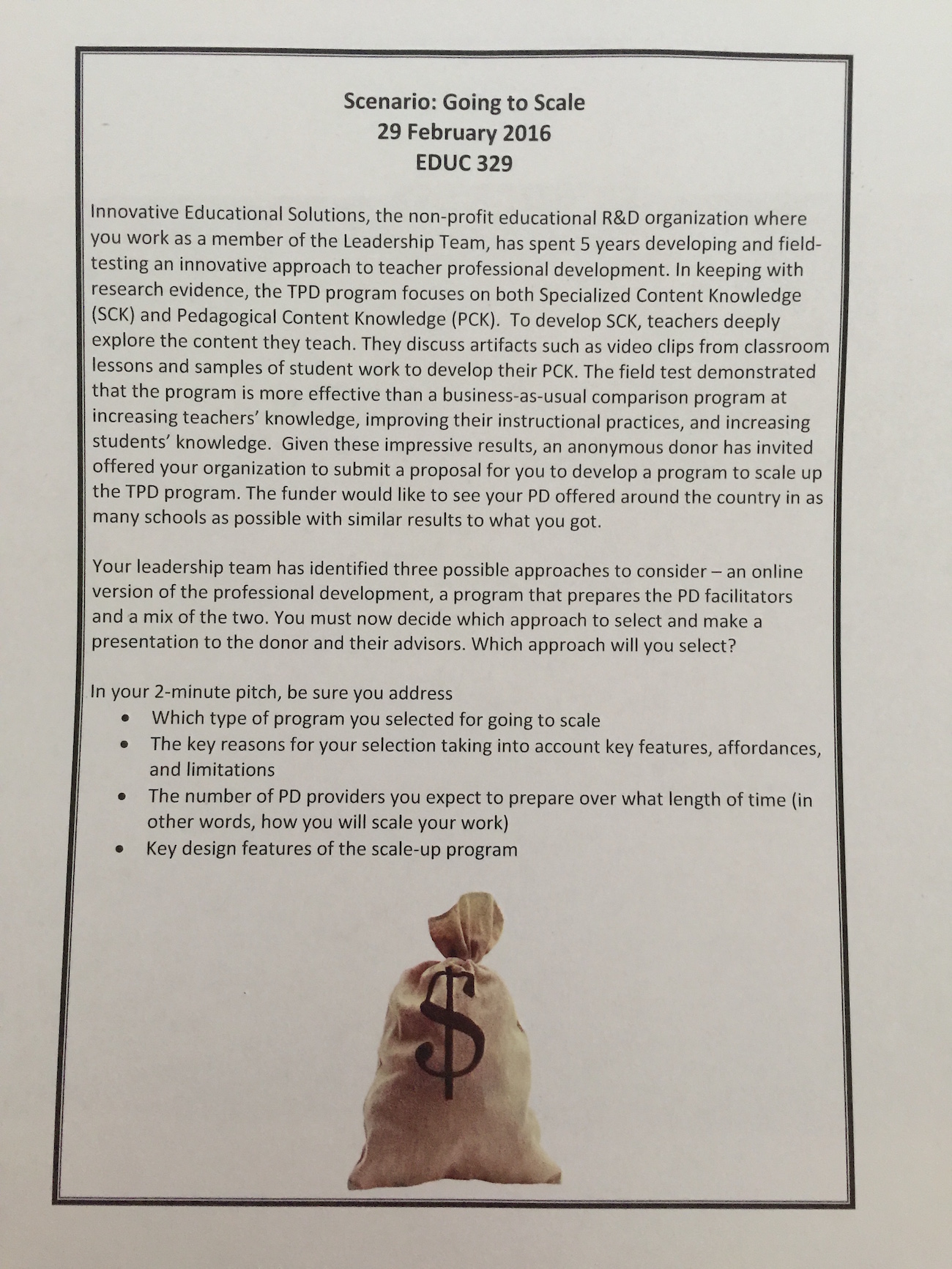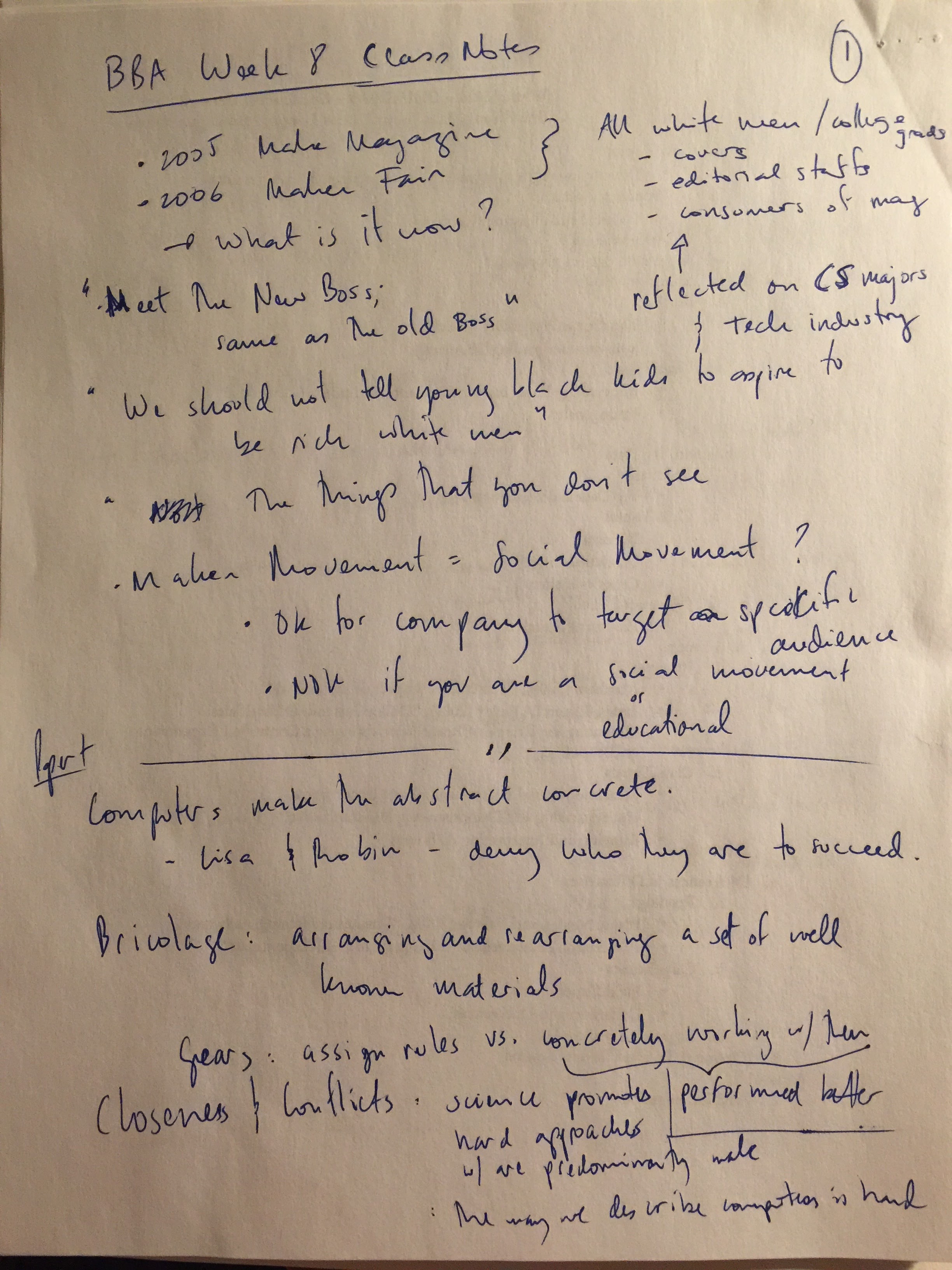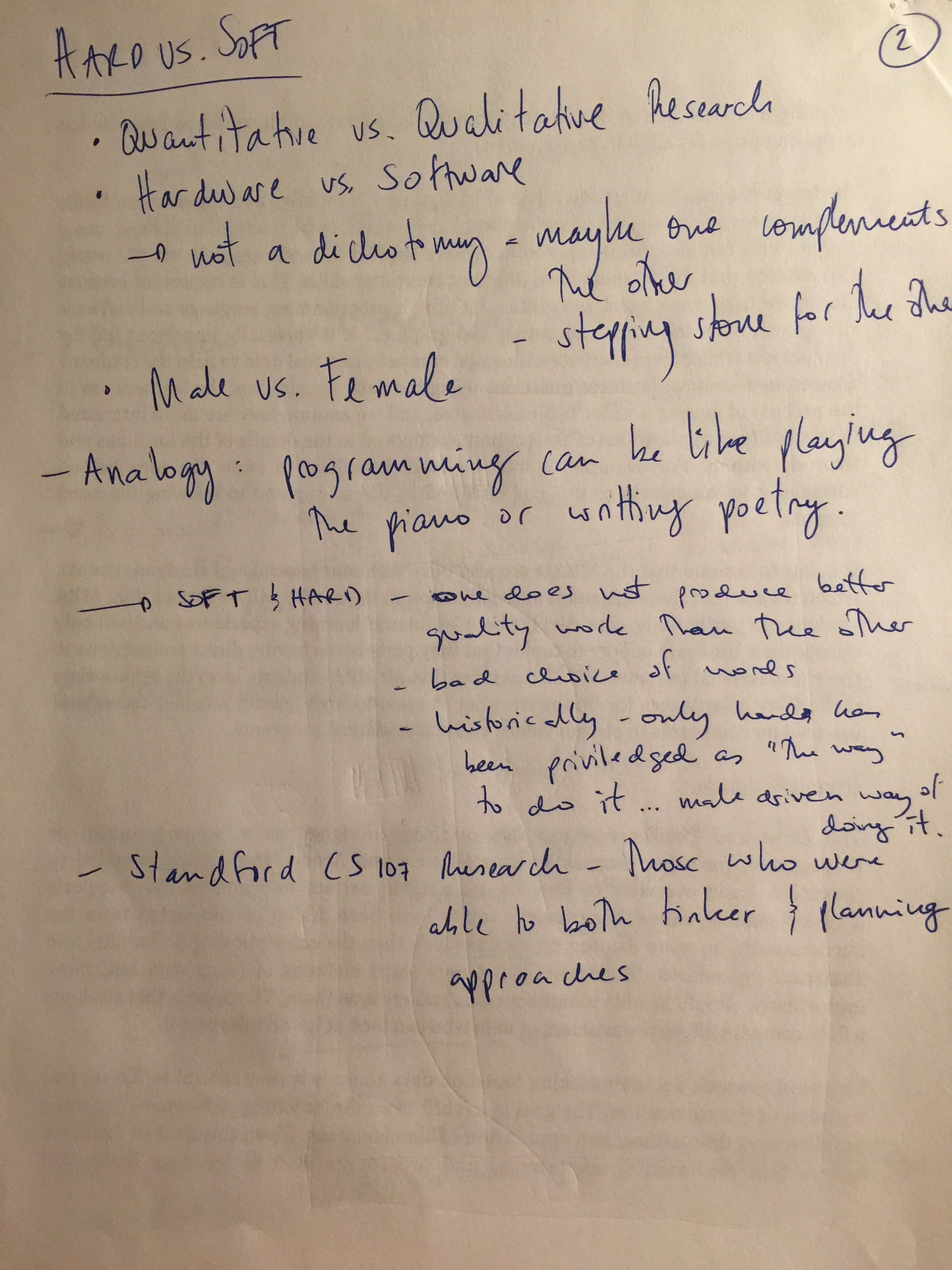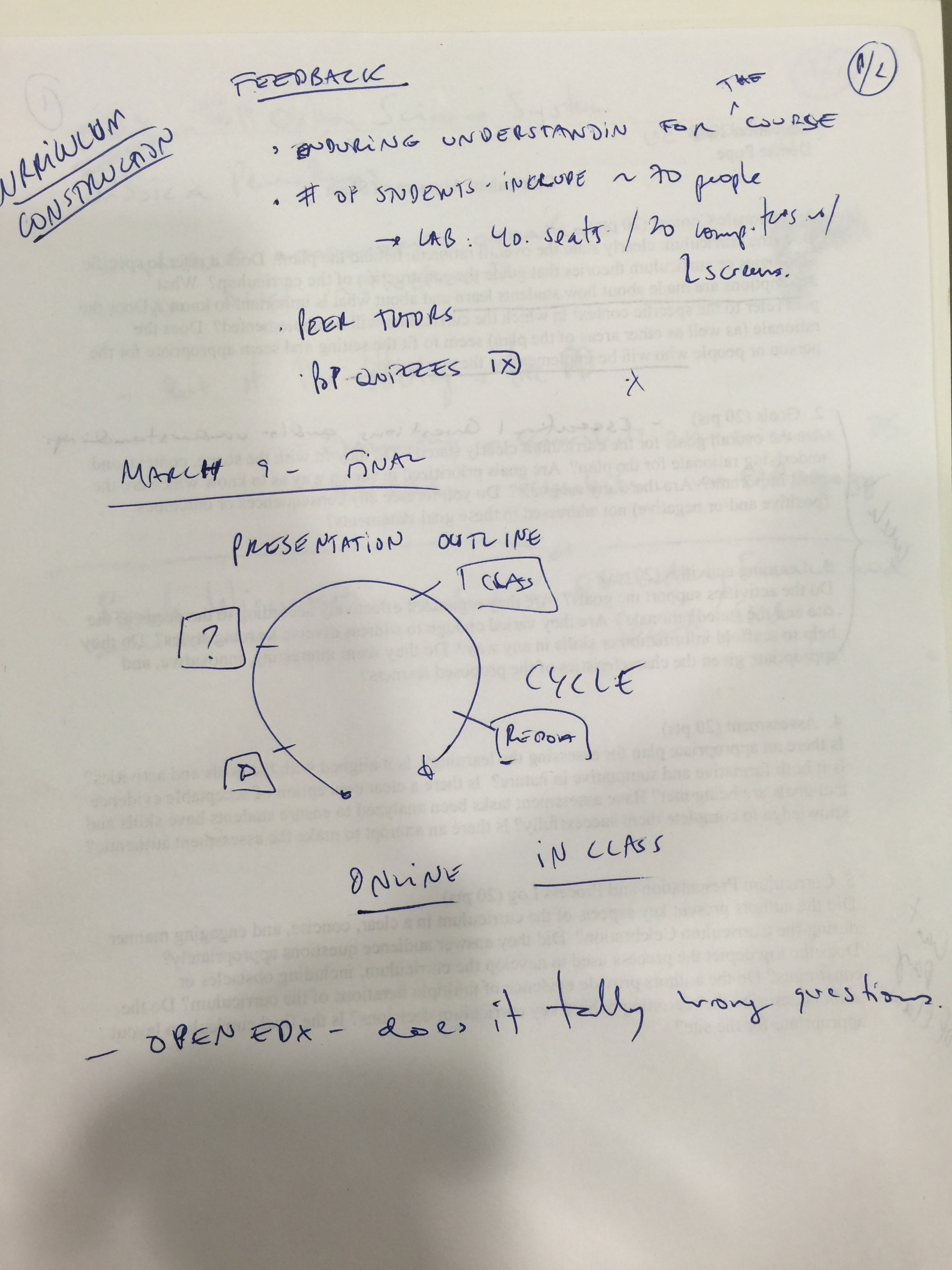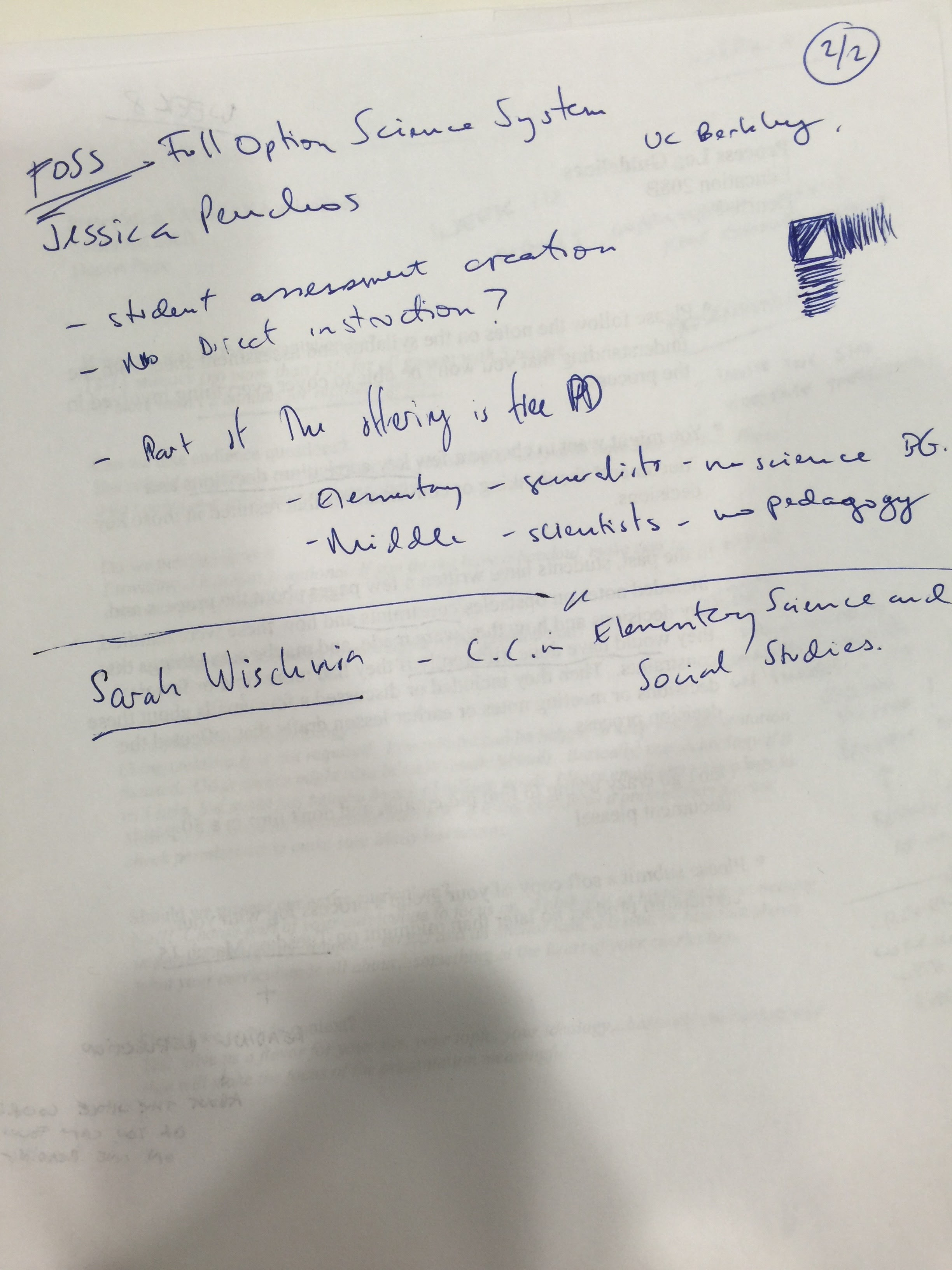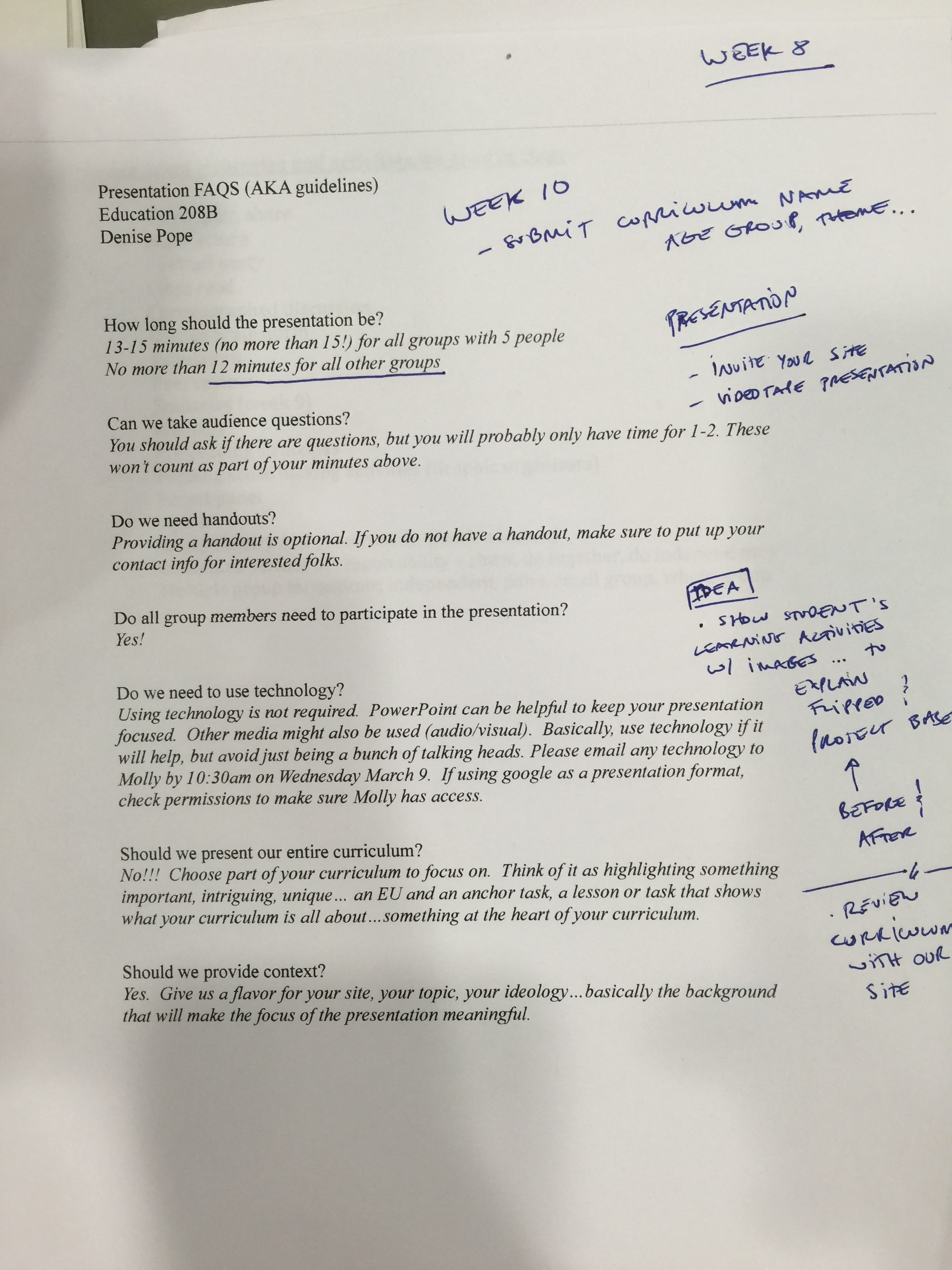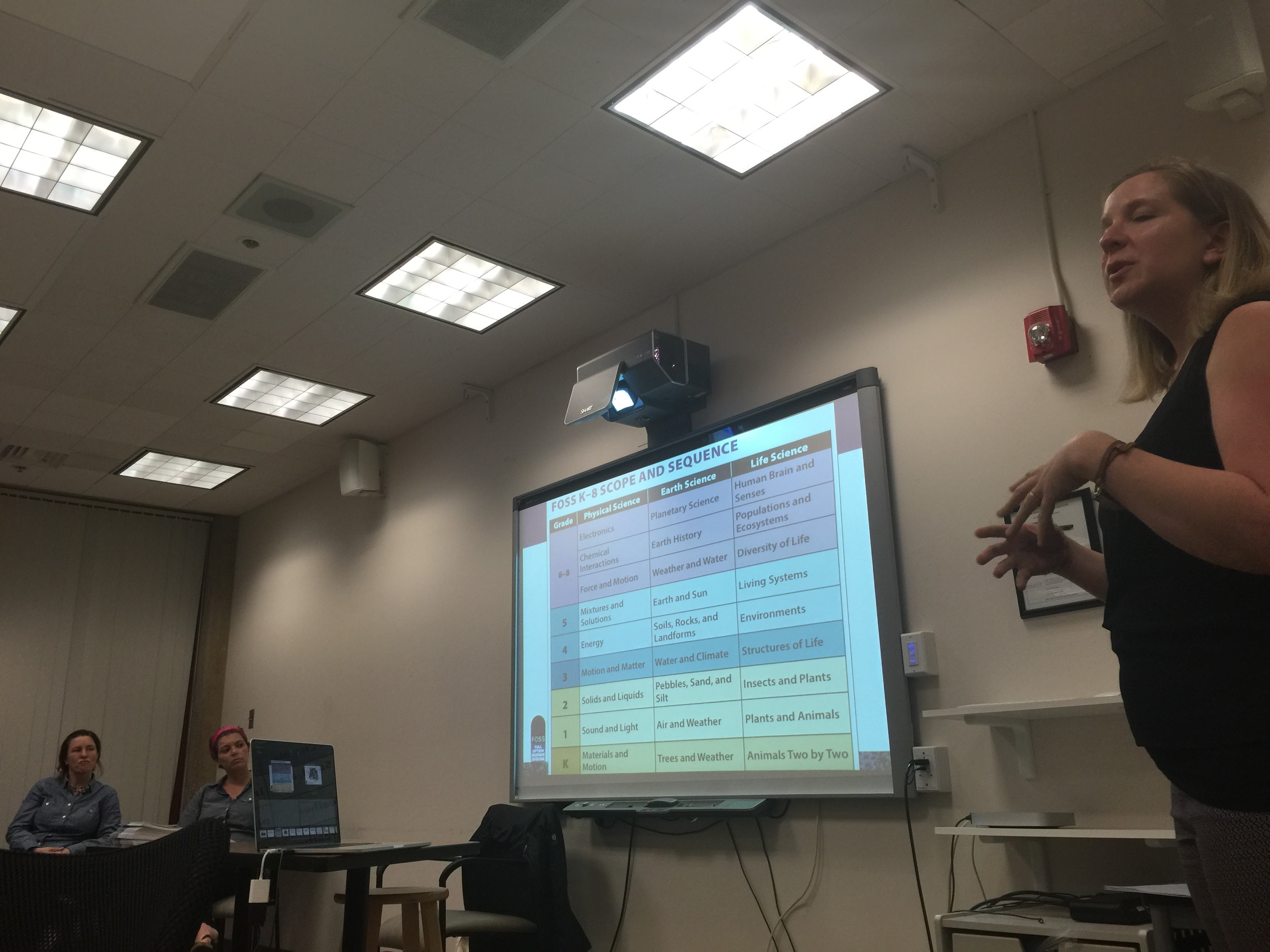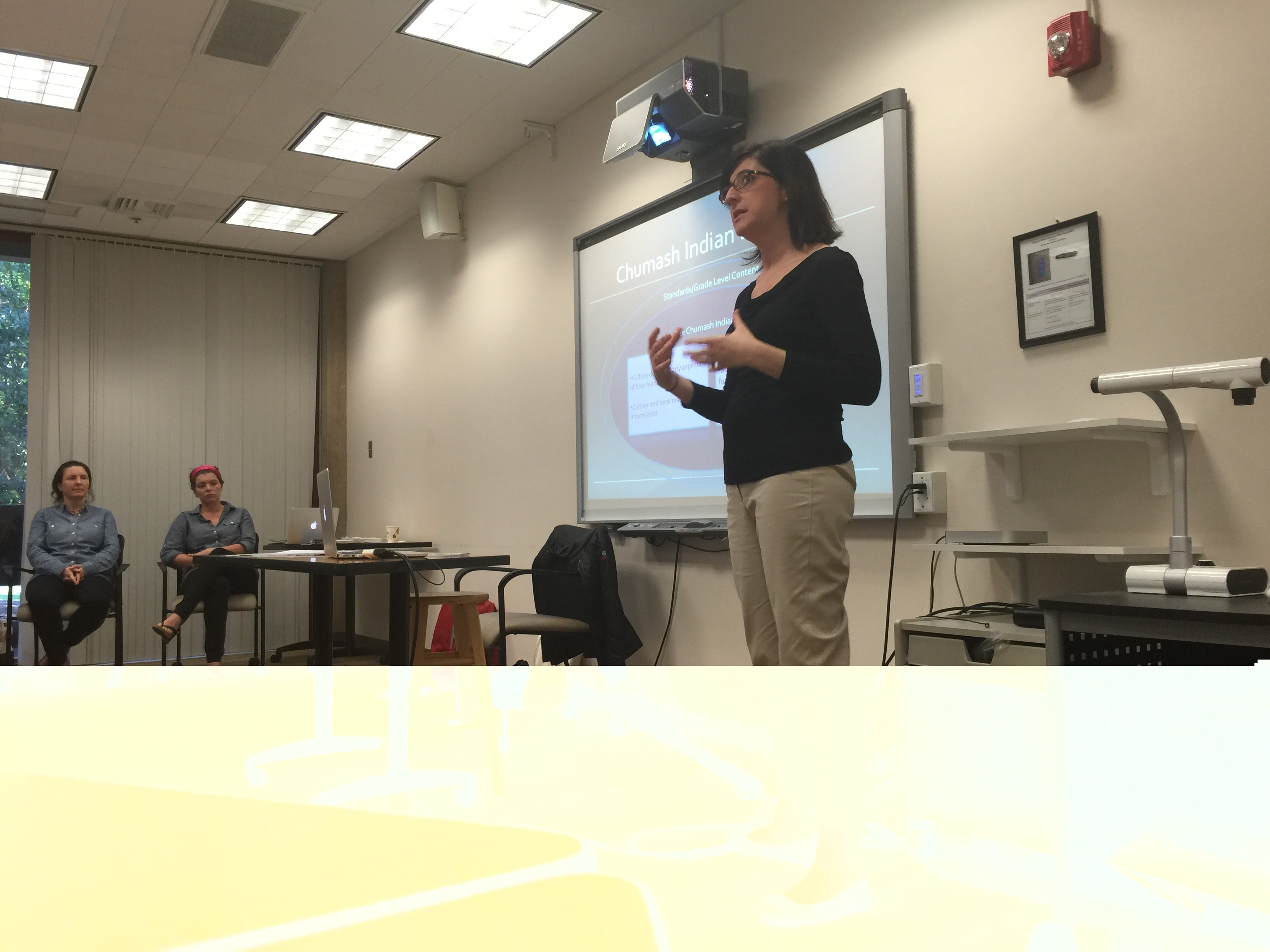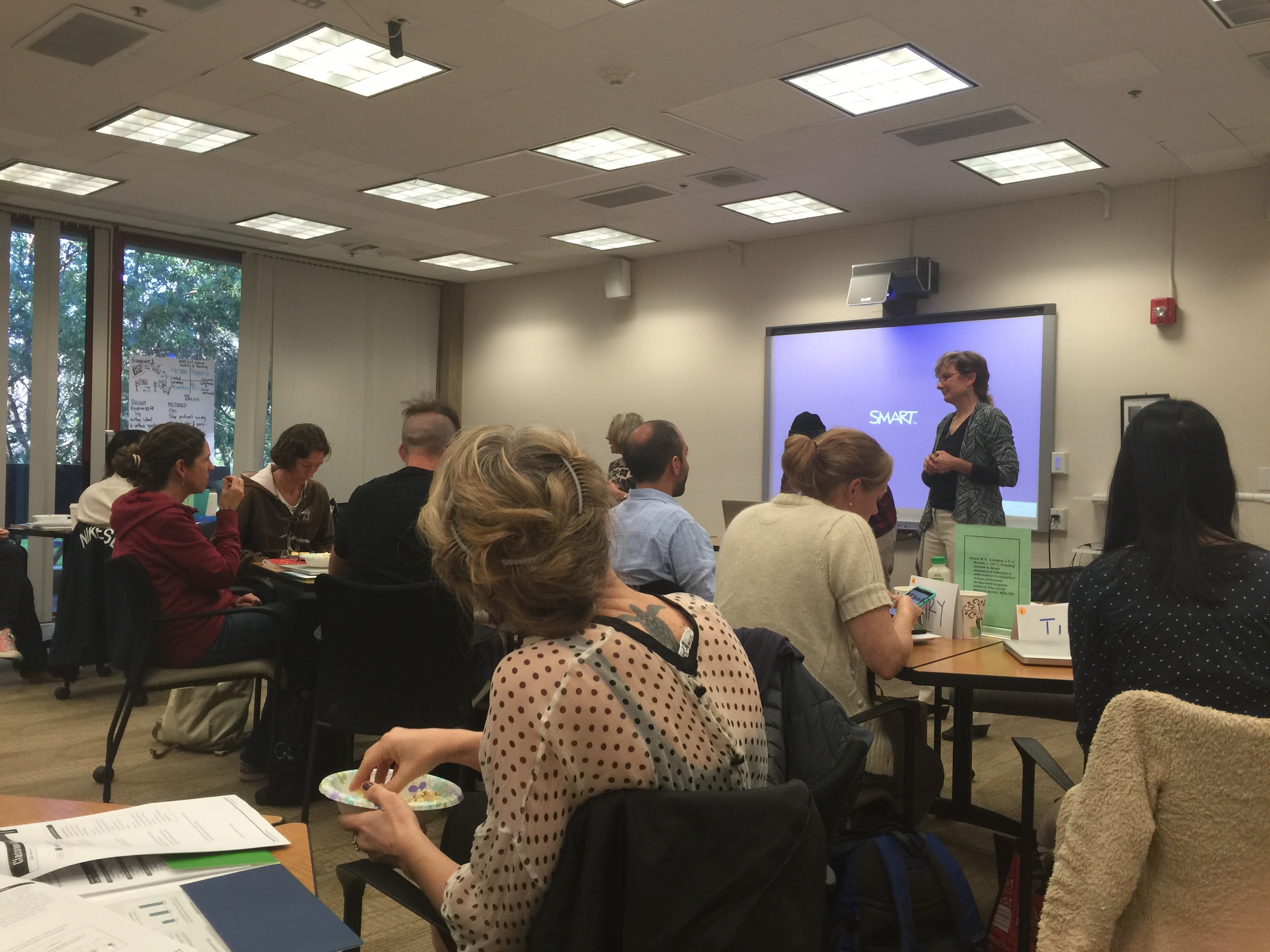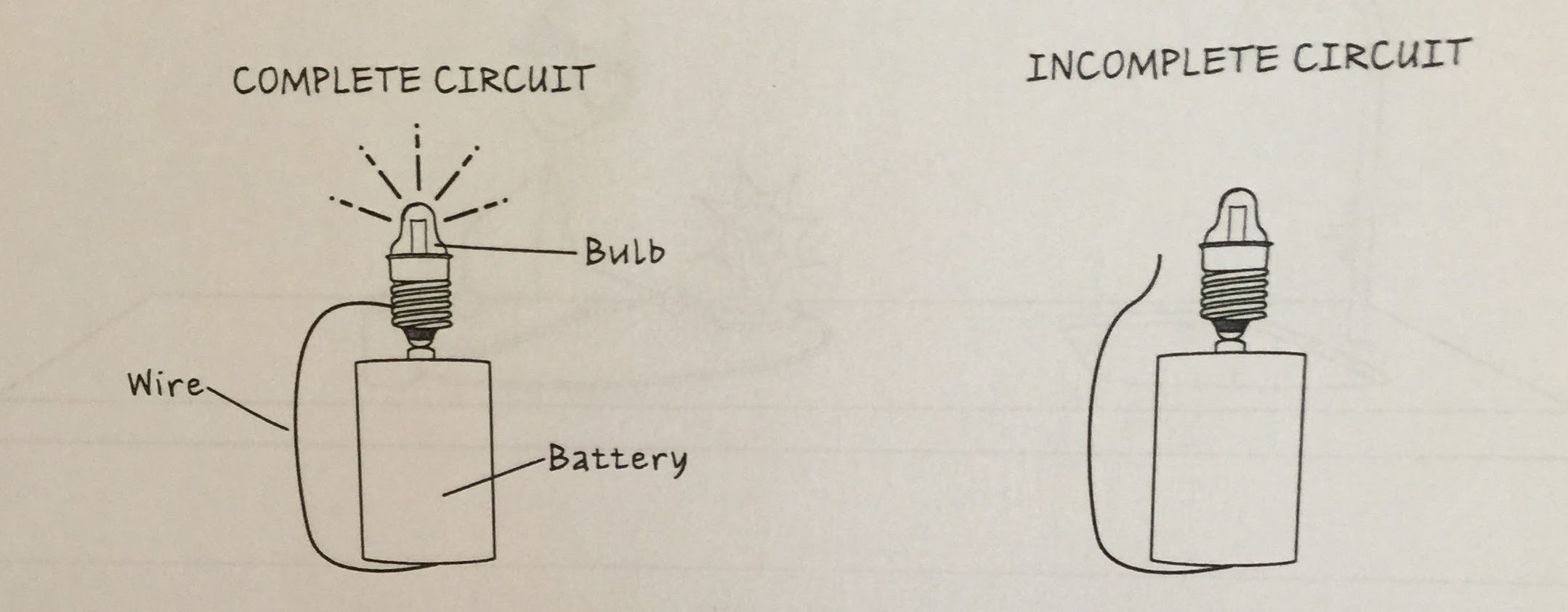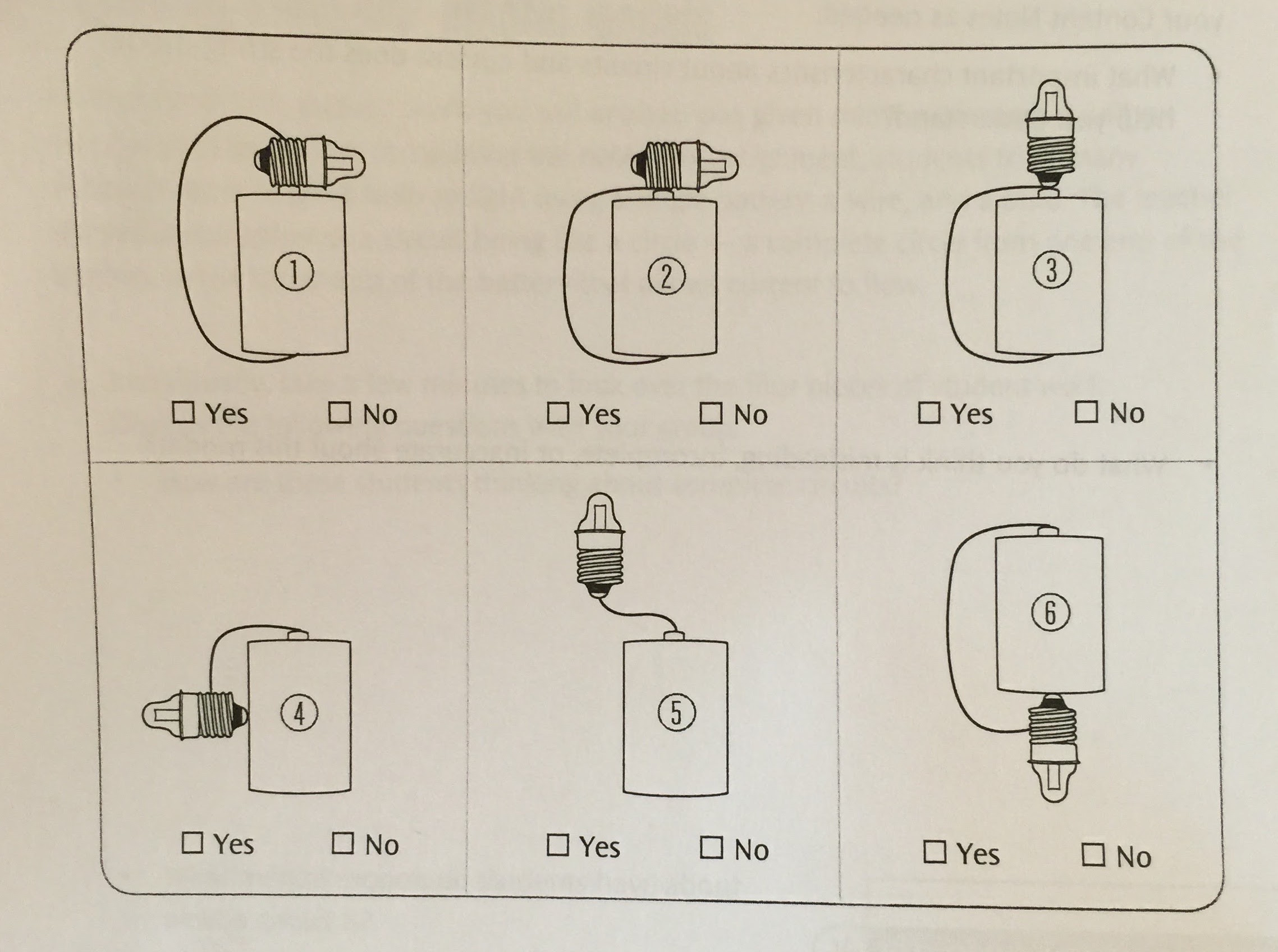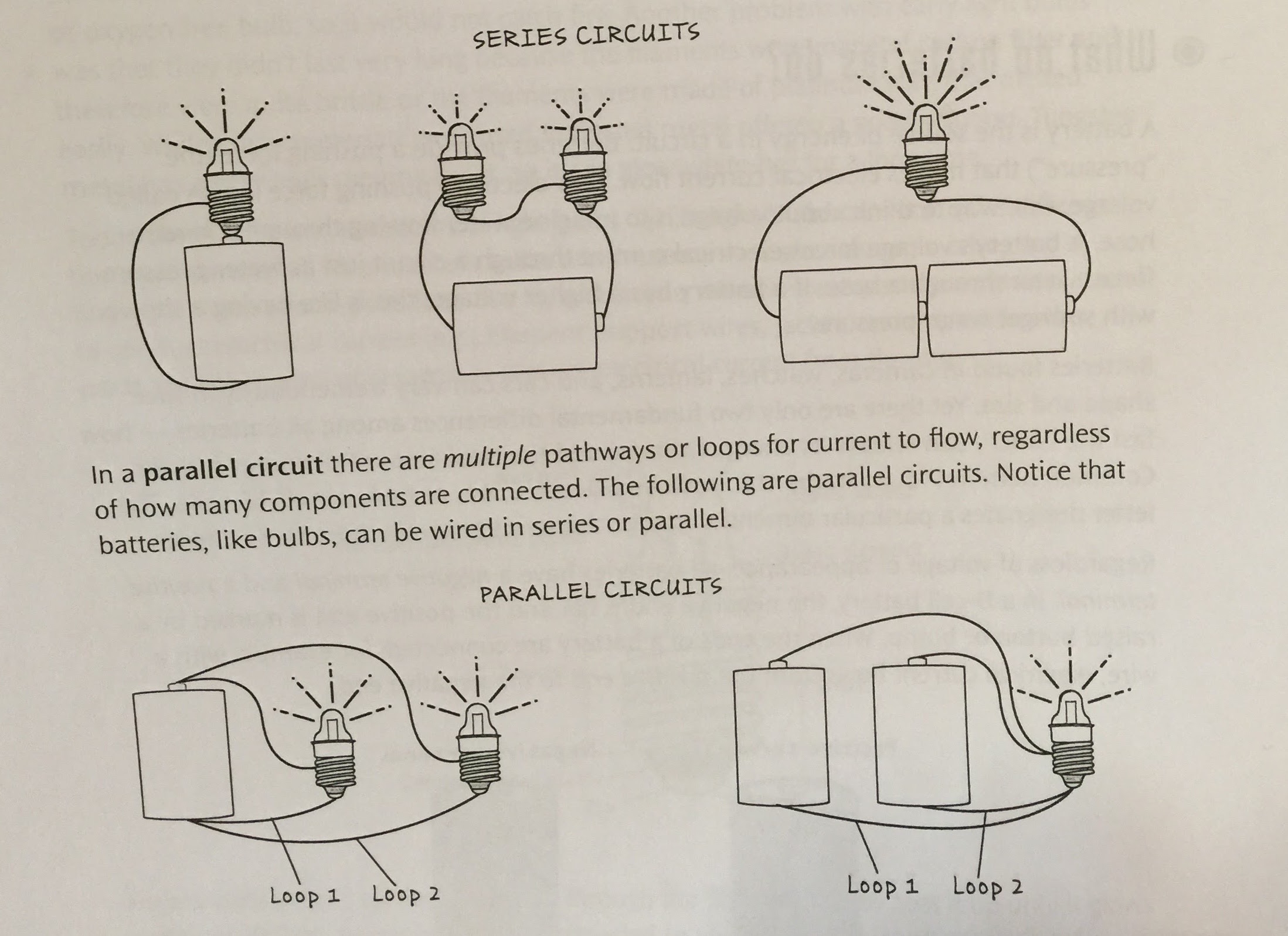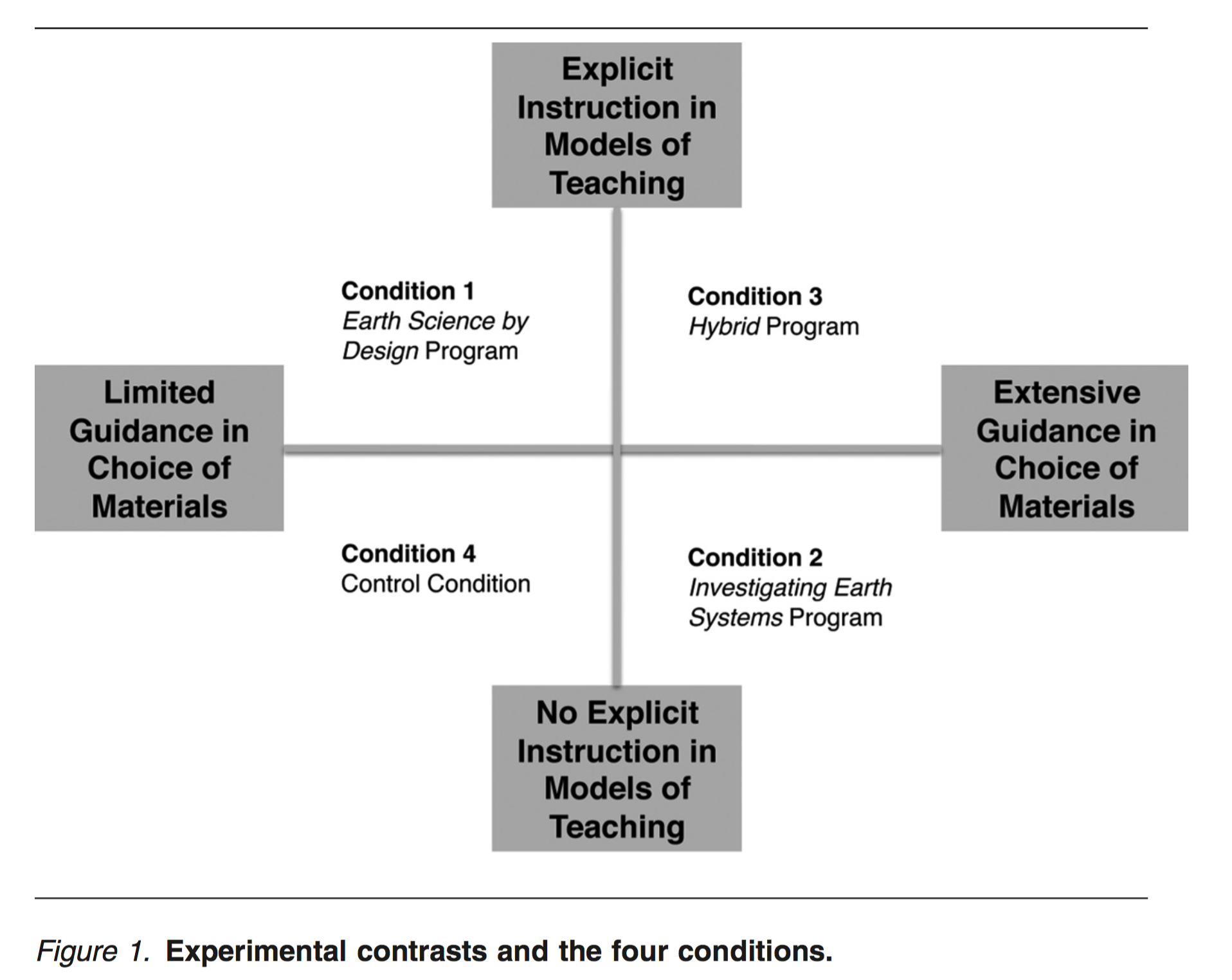Borko, H., Koellner, K., & Jacobs, J. (2011). Meeting the challenges of scale: The importance of preparing professional development leaders. Teachers College Record, Date Published: March 04, 2011. http://www.tcrecprd.org ID Number: 16358.
- What Must Math Professional Development Leaders Know and Be Able to Do?
- Engaging teachers in productive mathematical work
- Have to give more than SCK but also multiple forms of representations and how to lead discussions about common misconceptions
- Leading discussions about student reasoning and instructional practices
- Must maintain focus and anchor discussions
- Analyze student work and videos is practice
- Building a professional community
- PD leaders must establish norms for constructive discussions
- Create a safe space
- Challenge is to train PD leaders but little support from stakeholders
Borko, H., Koellner, K., & Jacobs, J. (2014). Examining novice teacher leaders’ facilitation of mathematics professional development. The Journal of Mathematical Behavior, 33, 149–167.
- Facilitators are generally successful with
- Workshop culture
- Video clip selection for use in the PD workshops
- Facilitators have a hard time with
- Supporting discussions to foster SCK and PCK
- Mathematical Knowledge for Professional Development (MKPD)
- Need to prepare novice PD facilitators
- Need to show what quality PD looks like
- Draw candidates from practicing mathematics teachers for local, site-based PD
- Working with adults is different than working with kids
- 3 phase agenda for designing, implementing, and investigating scalable PD
- 1) Design for positive impact on teacher learning
- 2) Design for repeatability in different contexts and with different facilitators
- Specify role of facilitator
- Develop resources and training for facilitators
- 3) Compare multiple PD programs on impact on teacher and student learning
- Conceptual framework: Scalable high-quality mathematics PD
- Structure
- Opportunities to engage with learning community, situated in the practice of learning
- Select and use artifacts such as student work and videos
- Safe space: trust and respect to be able to look at own’s work
- Model instructional strategies
- Content
- Mathematics Knowledge for Teaching (MKT)
- Common content knowledge
- Specialized content knowledge
- Knowledge of content and students (KCS)
- Knowledge of content and teaching (KCT)
- Preparation of PD leaders
- Often a missing step in educational reform efforts
- Need to know the content and how to lead
- “leaders must be able to identify mathematics problems and discussion prompts that promote in-depth conversations focused on the mathematics content, support productive social interactions, and orchestrate discussions that help teachers unpack their often highly symbolic or incomplete reasoning (Elliott et al., 2009).” (Borko, Koellner, & Jacobs, 2014, p151)
- Project Design: preparing teacher leaders to facilitate the Problem-Solving Cycle (PSC)
- How well do teacher leaders (TL) implement PSC with fidelity
- What did they enact well?
- What was hard to enact?
- PSC
- PD for TLs
- PD for teachers
- Improved quality of teaching
- Improved student learning
- Cycle
- Teachers collaboratively solve math problems & develop plans for teaching it
- Implement plan with own students & video tape lessons
- Facilitators select video that represent key moments
- Analyze and discuss material
- Supports needed
- Create a professional learning community
- Facilitate discussions with teachers
- Facilitate video-based discussions to examine student thinking and classroom instruction
- Results
- Workshop culture
- TL were able to establish a safe space and engage teachers in discussions
- “As Mandy explained, “I already knew the teachers, so the comfort level and things like that were pretty much set.” Jordan agreed, noting that “the group came together rather quickly.” (Borko, Koellner, & Jacobs, 2014, p157)
- Eliciting thoughts about their own students’ work helped in engagement
- Challenge is to get participants to share ideas and take intellectual risks
- Specialized Content Knowledge
- Solution strategies are rated higher than mathematical representations
- Pedagogical Content Knowledge (PCK)
- Video clip selection
- Often hard to find examples from teacher’s practices – easier when videos are selected by PD designers
- TL did a good job at selecting the videos though
- BUT were not as successful in leading discussions on instructional practices or student thinking
- TL’s training focused on video selection & launching questions
- Have to focus more on leading discussions
- TLs find it harder to lead discussion where teachers critique their instructional practices
- Easier to analyze student’s mathematical reasoning
- General Discussion and Implications
- TLs were able to replicate PSC model in PD
- Easily enacted characteristics
- Climate of respect and trust
- Collaborative working relationships
- Suggestions for establishing and maintaining community
- Video clip selection – teach teachers to select their own videos and share
- Hard characteristics to enact
- Difficulty in supporting deep analysis in discussion to foster SCK, PCK: KCS & KCT
- They did get extensive preparation and support… but still might need more
- TL’s content knowledge must also be increased
- They were able to show multiple solution strategies or mathematical representations
- BUT had a hard time discussion the relationship, affordances, and limitations of the solutions/representations
- High- and Low-Press Exchanges
- “The three indicators on which the TLs were rated more highly—generating and analyzing ways to solve the task, discussions of various representations, and discussions of various solution strategies—are similar to what Kazemi and Stipek (2001) referred to as “low-press exchanges” in the elementary mathematics classrooms they studied, exchanges such as solving open-ended problems in groups and sharing solution strategies. In contrast, the five indicators that entail analyzing reasoning, discussing relationships among representations or solution strategies, and discussing affordances and constraints of representations or solution strategies are similar to the “high-press exchanges” they described.” (Borko, Koellner, & Jacobs, 2014, p164)
- More opportunities for practice
- It’s an art just like teaching
- Need skillful improvisation
- Conclusion
- Scale PD, scale PD Facilitators
- Create a research body on MKPD
- “We believe that these three possible domains of MKPD—specialized content knowledge, pedagogical content knowledge, and learning community knowledge—go beyond and look different than the knowledge that a typical mathematics classroom teacher holds. Because PD leaders are expected to promote the development of teachers’ knowledge in these domains, they must hold a deeper and more sophisticated knowledge of mathematics than their colleagues, just as teachers must hold a deeper and more sophisticated knowledge than their students.” (Borko, Koellner, & Jacobs, 2014, p165)
Jackson, K., Cobb, P., Wilson, J., Webster, M., Dunlap, C., & Appelgate, M. (2015). Investigating the development of mathematics leaders’ capacity to support teachers’ learning on a large scale. ZDM Mathematics Education, 47, 93-104.
- Revised learning goals for math leaders’ learning
- Principles for supporting math leaders’ capacity to design and lead high-quality PD
- Sustained over time and involve the same group of teachers working together (Darling-Hammond, Wei, Andree, Richardson, & Orphanos, 2009)
- Supports for teachers’ learning should be close to practice (Ball & Cohen, 1999)
- Co-participation with accomplished others
- Pedagogies of investigation and of enactment (Grossman et al., 2009)
- Video-cases for teaching (Borko, Koellner, Jacobs, & Seago, 2011; Sherin & Han, 2004)
- Pressing productively on teacher’s ideas
- Worked with district over 4 cycles of PD design and deployment
- Treating teacher learning as a progression is a must
- Productive types of PD activities that are useful to enact in Teacher PD
- Modeling a lesson with follow-up discussion
- Viewing video-recordings with follow-up discussion
- Discussion and conclusion
- PD leaders understood and supported teachers’ learning progression
- PD leaders used more “show-and-tell” than deep discussions and facilitations
- Need to add a goal that focuses on the “development of new practices as a process of reorganizing their current practices that requires explicit guidance.” (Jackson, Cobb, Wilson, Webster, Dunlap, & Appelgate, 2015, p102)
- Investigate prior Teacher PD sessions (video) and jointly plan for upcoming sessions with accomplished others, worked.
- Need to work on supporting PD Designer “in learning how to press on particular teacher understandings and specific aspects of their practice.” (Jackson, Cobb, Wilson, Webster, Dunlap, & Appelgate, 2015, p102)
- Use videos of the PD session itself to inform improvements in their design
Fishman, B., Konstantopoulos, S., Kubitskey, B.W., Vath, R., Park, G., Johnson, H., & Edelson, D.C. (2013). Comparing the impact of online and face-to-face professional development in the context of curriculum implementation. Journal of Teacher Education, 64 (5), 426-438.
- Online vs face-to-face PD sessions
- No significant differences in outcomes
- Used the same content as a base for comparison
- Research question and subquestions:
- How does online PD compare with face-to-face PD in terms of effects on teachers and students when the PD content is held constant?
- Are there differences in teachers’ learning in terms of changes in beliefs and knowledge as a function of different PD modalities?
- Changes in teacher CK
- Teacher’s beliefs about self-efficacy to teach
- Teacher’s beliefs about teaching in general
- Are there differences in teachers’ classroom practice?
- Videotaped teacher’s practice
- Are there differences in student learning outcomes as a function of PD modalities?
- The Evolution of Research on Teacher Learning from PD
- From studies of attitude and beliefs (self-reported) to teacher and student learning (classroom practice and student learning data)
- New curriculum providers offer PD on how to implement/adopting their curriculum
- Online PD has many benefits
- Accommodate teachers’ busy schedules
- Access to powerful resources no available locally
- Supports ongoing learning
- No need to assemble in same location
- BUT – how about building a community amongst teaches?
- Online PD in the research had a face-to-face general orientation session: blended/hybrid online model
- PD standards that were being taught:
- Making connections
- Evidence-based decision making
- Technology use
- Online PD self-pacing is a great benefit
- Teachers can go at their own pace
- Teachers can access material in a need-to-know basis
- Looking at material while teaching, not in a separate session
Moon, J., Passmore, C., Reiser, B.J., & Michaels, S. (2014). Beyond comparisons of online versus face-to-face PD: Commentary in response to Fishman et al., “Comparing the impact of online and face-to-face professional development in the context of curriculum implementation.” Journal of Teacher Education, 65 (2), 172-176.
- Review of Fishman et all study
- Design of the PD itself was underspecified
- Assumptions on PD learning goals were not made clear
- Not much detail about evaluation measures
- Face-to-face vs online benefits might vary depending on specific activities and goals
- “The relative merits of online versus face-to-face conversation may vary across activities depending on the type of work planned for the teachers and the nature of sense-making and collaboration required.” (Moon, Passmore, Reiser, & Michaels, 2014, p2)
- PD tenets
- Embedded in the subject matter
- Involve active sense making and problem solving
- Connected to issues of teachers’ own practice
- Next Generation Science Exemplar System (NGSX)
- Web-based learning environment for teachers
- Does not require a skilled facilitator on-site
- Online PD
- Better affordances…
- “There are affordances of online systems that simply cannot be matched in a traditional setting. However, as a field, we know little about how these web-enabled and social media capacities interact with teacher learning and whether or how they are in line with established ideas about professional learning in general.” (Moon, Passmore, Reiser, & Michaels, 2014, p3
- Limitations of community building but the next generation of teachers is used to that!
Fishman, B., Konstantopoulos, S., Kubitskey, B.W., Vath, R., Park, G., Johnson, H., & Edelson, D.C. (2014). The future of professional development will be designed, not discovered: Response to Moon, Passmore, Reiser, and Michaels, “Beyond comparisons of online versus face-to-face PD.” Journal of Teacher Education, 65 (3), 261-264.
- Response to Moon’s response to Fishman
- Looked at different media in PD delivery
- “The heart of our study was the experimental comparison of PD delivered in two different media. Our study was a “media comparison” study, the value of which has been hotly debated in the field of educational technology (Clark, 1983, 1994; Kozma, 1994).” Fishman et al, 2014)
